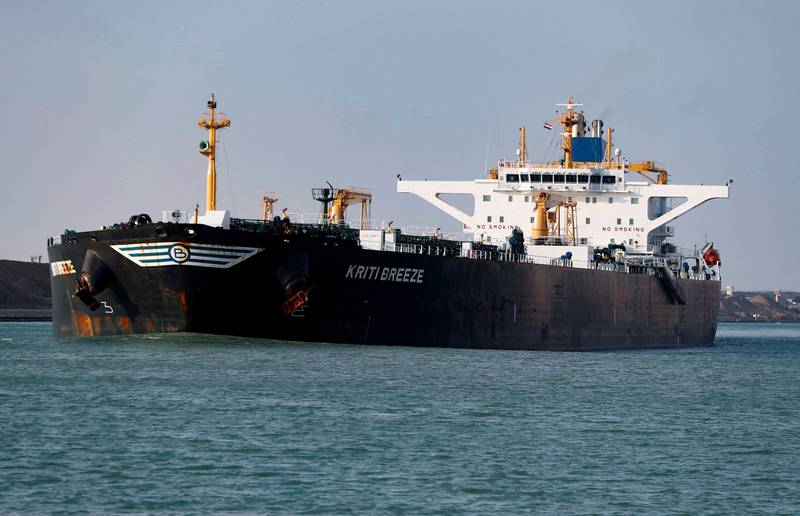
Egypt has signed an agreement worth $3 billion to produce up to 350,000 tonnes of green fuel annually for ships passing through the Suez Canal, the Egyptian Cabinet and the Suez Canal Economic Zone said on Wednesday.
The deal for the green hydrogen megaproject in Ain Sokhna on the Red Sea was signed between the government and the “Green Fuel Alliance” consortium led by French firm EDF Renewables and Egyptian company Zero Waste.
The Egyptian government was represented by the General Authority for the Suez Canal Economic Zone (SCZone), the Ministry of Electricity, the Authority of New and Renewable Energy and the Sovereign Fund of Egypt.
“The SCZone welcomes the opportunity of partnering with the distinguished public and private entities joining forces for the development of this megaproject,” said Yehia Zaki, chairman of the general authority for the SCZone, which spans 461 kilometres.
“We look forward to witnessing its execution over the coming months as a first step towards the adoption of the green ammonia technology and creation of a green fuels industrial hub in the SCZone.”
Egypt also signed an agreement with the UAE’s AMEA Power, which is affiliated with Al Nowais Group, to produce up to 390,000 tonnes of green ammonia a year in Ain Sokhna.
“The Egyptian state, under the leadership of President Abdel Fattah El Sisi, is keen to sign more projects that support the transition to a green economy,” said Egyptian Prime Minister Mostafa Madbouly.
“Every effort in this regards is consistent with Egypt’s enormous capabilities to produce green hydrogen and green ammonia.”
The country is seeking to position itself as a regional energy hub and has been ramping up its green hydrogen ambitions in recent months, especially as it is set to host the Cop27 climate summit in Sharm El Sheikh in November.
Last month, Egypt signed an agreement with Norway’s Scatec to build the country’s first green ammonia plant at a cost of $5bn with a production capacity starting at 1 million tonnes annually and increasing to 3 million tonnes. The project in Ain Sokhna’s industrial zone is expected to start production in 2025.
Hydrogen is projected to account for 12 per cent of global energy use and 10 per cent of carbon dioxide emissions reductions by 2050, driven by climate change urgency and countries’ commitments to net zero, according to the International Renewable Energy Agency.
Current annual hydrogen sales represent a market value of about $174bn, which already exceeds the value of annual trade in liquefied natural gas, and could grow to $600bn by 2050.
The first phase of the latest project is planned for 2026 and second phase for 2030.
The bunkering fuel will be used to service Suez Canal maritime traffic to help accelerate the timeline of the maritime industry to reach net zero emissions, SCZone said.
“Developing a megaproject for green hydrogen and ammonia production in Egypt will be a key milestone for the region,” said Frederic Belloy, EDF Renewables’ vice president of international operations.
It will also “create local job opportunities in the country and support the decarbonisation process of some of the most intensive carbon-producing industries, which are transportation and mobility”.
EDF Renewables is a subsidiary of the EDF Group in which the French government holds an 84 per cent stake. It develops, builds and operates renewable power plants in about 22 countries.
Zero Waste, an Egyptian company that initiated the concept of green fuel bunkering stations, will work with EDF Renewables on the project.
“By offering zero-carbon fuel to the maritime industry crossing the Suez Canal by 2026, Egypt will continue to be a leader in the fight against climate change,” said Zero Waste chairman Amr Elsawaf.